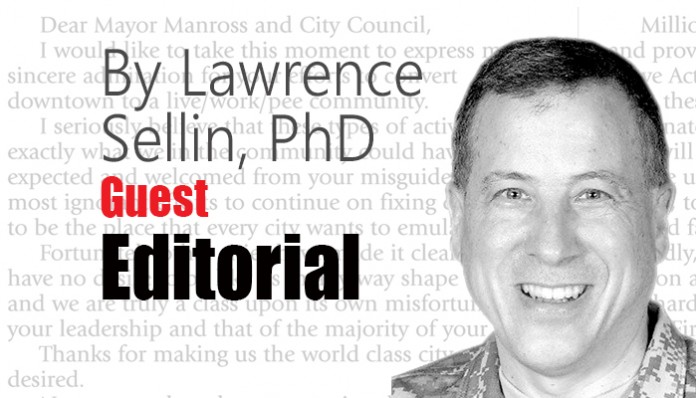It has been reported that the U.S. is gearing up to assist Iraqi forces in an offensive to reclaim the city of Mosul from Islamic State, an operation expected to begin as early as October.
Mosul was captured by Islamic State in June 2014 when Iraqi security forces, riddled with corruption and sectarianism despite billions of dollars in U.S. aid, dropped their weapons and fled from the insurgents.
An additional 400 American troops have been sent into Iraq to assist Iraqi forces consolidating south of Mosul in the city of Qayyarah. There now are more than 5,000 U.S. military personnel in the country.
According to Lt. Gen. Stephen Townsend, the new commander of the U.S.-led coalition fighting Islamic State, the battle to retake the jihadist group’s last major Iraqi stronghold will be a difficult and dangerous operation, like “a siege.” Fortifications, tunnels, improvised bombs and even civilians used as human shields likely await advancing forces. Islamic State fighters are digging moats and filling them with oil and tires and burning them to obscure the view of U.S. pilots conducting airstrikes or aerial surveillance.
Winning, however, is only half the battle. Conquest is easy. Control is not.
The Mosul operation has also triggered large-scale humanitarian planning, with the U.N. predicting that up to one million people could flee the city in all directions, potentially exacerbating the already-existing demographic and security concerns of regional players.
Governance may present an even greater challenge, a failure of which will only increase and prolong the humanitarian crisis.
The battle for Mosul is like the race to get to Berlin between the Soviets and the West in 1945. The positioning of forces of the Kurds, Shia and Sunni Arabs in this final push is expected to redraw the boundaries in northern Iraq. For the Shia-dominated and Iranian-aligned Iraqi government, who will attack from the south, this is a chance to reunify the country under the control of Baghdad. But for the Kurds in the north and east of Mosul, the fight against the Islamic State is an opportunity for greater autonomy or even independence. For the Sunni Arab militia, which will join the Kurds in attacking Mosul from the west, the battle is a chance to re-establish a Sunni presence that has nothing to do with the Islamic State, but everything to do with Iraqi politics and Iranian regional hegemony.
In a civil conflict or disaster situation, command and control is as important as food, water, or shelter. When human life is lost and the infrastructure is devastated, humanitarian and governance organizations can quickly become overwhelmed by the number and complexity of the problems without an efficient and effective means to integrate and coordinate relief and stability efforts.
The rapid deployment of ad hoc networks and services in event-driven environments should fulfill the following basic criteria:
Establish critical communication support capabilities to facilitate information sharing and collaboration among relief organizations through a secure wireless infrastructure supplying voice, data and video services.
Provide a single portal application interface for government, military, private sector, UN, and NGO relief organizations, whose features include:
Interoperability and collaboration based on commercial off-the shelf (COTS) components and open standards;
Directory integration of names and contact information for inter/intra-agency collaboration and synchronous and asynchronous information exchange;
Situational awareness and incident tracking with geo-spatial mapping capabilities;
Multiple and instantaneous language translation.
The objective is to enable multiagency interoperability and real-time crisis management to help save lives, protect property and manage recovery efforts — after the battle.
A humanitarian and governance nightmare in Mosul and the surrounding area is inevitable. Whether that crisis can be met effectively with the necessary command and control infrastructure and policies remains an open question.
How the U.S. wins the battle against the Islamic State and perhaps, more importantly, manages a fragile peace, may ultimately determine, at least strategically, our success or failure in the fight against radical Islam and the achievement of some degree of Middle East stability.
Lawrence Sellin, Ph.D. is a retired U.S. Army Reserve colonel, a command and control subject matter expert, trained in Arabic and Kurdish, and a veteran of Afghanistan, northern Iraq and a humanitarian mission to West Africa. He receives email at [email protected].





